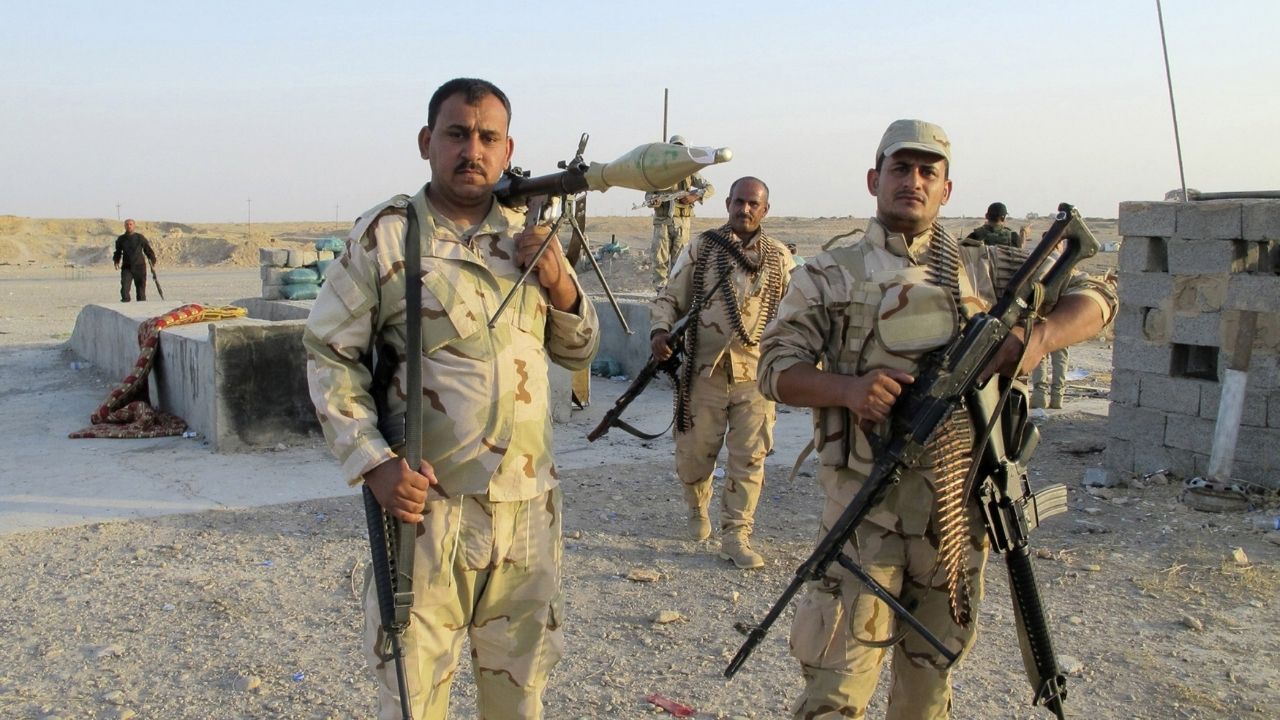
The Islamist insurgency in Iraqi Kurdistan has been a complex and ongoing conflict, deeply rooted in regional politics, historical grievances, and religious ideologies. This insurgency involves various militant groups, each with its own agenda and tactics. Understanding this conflict requires looking at the broader context of Iraq's turbulent history, the role of Kurdish autonomy, and the influence of external powers. Key factors include the rise of extremist factions, the impact of the U.S. invasion of Iraq in 2003, and the ongoing struggle for control over resources and territory. This article will provide 25 essential facts to help you grasp the intricacies of this multifaceted insurgency.
Key Takeaways:
- The Islamist insurgency in Iraqi Kurdistan has deep historical roots, fueled by oppression, power vacuums, and economic hardships, leading to devastating impacts on civilians.
- Various insurgent groups, including Ansar al-Islam and ISIS, have played significant roles in the conflict, with international involvement and profound effects on the civilian population.
Origins of the Islamist Insurgency in Iraqi Kurdistan
The Islamist insurgency in Iraqi Kurdistan has deep roots and complex causes. Understanding its origins helps explain the current situation.
- Historical Grievances: Kurdish people have faced oppression and marginalization for decades, fueling resentment and unrest.
- Post-Gulf War Vacuum: After the Gulf War, a power vacuum emerged in northern Iraq, creating fertile ground for insurgent groups.
- Influence of Al-Qaeda: Al-Qaeda's ideology and tactics influenced many insurgent groups in the region.
- Ethnic and Sectarian Tensions: Long-standing ethnic and sectarian tensions between Kurds, Arabs, and Turkmen have exacerbated the conflict.
- Economic Hardships: High unemployment and poverty rates have made it easier for insurgent groups to recruit members.
Key Insurgent Groups
Several groups have played significant roles in the insurgency. Each has its own goals and methods.
- Ansar al-Islam: Founded in 2001, this group aimed to establish an Islamic state in Kurdistan.
- Kurdistan Islamic Group (KIG): A political party with an armed wing, KIG has been involved in various insurgent activities.
- Kurdistan Islamic Movement (KIM): Another political party with militant elements, KIM has sought greater autonomy for Kurds.
- Islamic State of Iraq and Syria (ISIS): ISIS has had a significant presence in Iraqi Kurdistan, conducting numerous attacks.
- Jund al-Islam: A precursor to Ansar al-Islam, this group was active in the early 2000s.
Major Incidents and Attacks
The insurgency has seen numerous violent incidents. These attacks have had profound impacts on the region.
- 2003 Erbil Bombings: Suicide bombers targeted Kurdish political offices, killing over 100 people.
- 2004 Twin Suicide Bombings: Attacks on Kurdish party offices in Erbil killed 109 people.
- 2013 Erbil Attack: A coordinated assault on the Kurdish security headquarters resulted in multiple casualties.
- 2014 ISIS Offensive: ISIS captured significant territory in northern Iraq, including parts of Kurdistan.
- 2015 Kirkuk Attack: ISIS militants attacked Kirkuk, leading to a prolonged battle with Kurdish forces.
International Involvement
Various international actors have been involved in the conflict, providing support or intervention.
- U.S. Military Support: The U.S. has provided military assistance to Kurdish forces fighting insurgents.
- Iranian Influence: Iran has supported certain Kurdish groups to counterbalance other regional powers.
- Turkish Operations: Turkey has conducted military operations against Kurdish insurgent groups along its border.
- Coalition Forces: An international coalition has conducted airstrikes and provided support to Kurdish forces.
- Humanitarian Aid: Numerous international organizations have provided humanitarian aid to civilians affected by the conflict.
Impact on Civilians
The insurgency has had devastating effects on the civilian population in Iraqi Kurdistan.
- Displacement: Thousands of people have been displaced due to the violence.
- Casualties: Many civilians have been killed or injured in attacks and battles.
- Economic Disruption: The conflict has severely disrupted the local economy, leading to widespread poverty.
- Psychological Trauma: The constant threat of violence has caused significant psychological trauma among the population.
- Education and Healthcare: Schools and hospitals have been damaged or destroyed, impacting access to education and healthcare services.
Final Thoughts on the Islamist Insurgency in Iraqi Kurdistan
The Islamist insurgency in Iraqi Kurdistan has left a significant mark on the region's history. Understanding the complex dynamics and key events helps us grasp the challenges faced by the Kurdish people. From the rise of Ansar al-Islam to the ongoing struggles for autonomy, the conflict has shaped the political landscape. The resilience of the Kurdish forces and their efforts to maintain stability amid turmoil is commendable. As we reflect on these facts, it's clear that the insurgency's impact extends beyond borders, influencing regional and global politics. Staying informed about such conflicts is crucial for fostering a more comprehensive understanding of the world's geopolitical landscape. The Kurdish struggle for peace and autonomy continues, reminding us of the importance of resilience and determination in the face of adversity.
Frequently Asked Questions
Was this page helpful?
Our commitment to delivering trustworthy and engaging content is at the heart of what we do. Each fact on our site is contributed by real users like you, bringing a wealth of diverse insights and information. To ensure the highest standards of accuracy and reliability, our dedicated editors meticulously review each submission. This process guarantees that the facts we share are not only fascinating but also credible. Trust in our commitment to quality and authenticity as you explore and learn with us.
